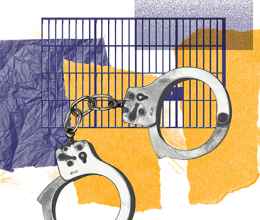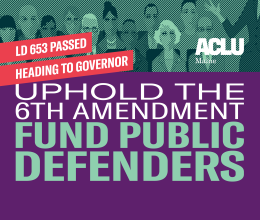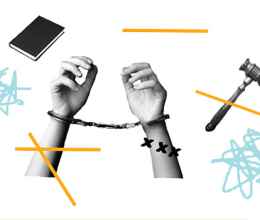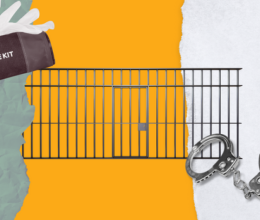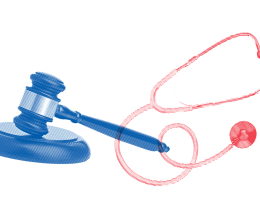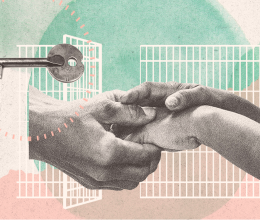I was excited to see HBO’s John Oliver dedicate the majority of the latest episode of Last Week Tonight to the issue of fines. Court fines, and the practice of incarcerating people for failing to pay them, is an issuing garnering national attention (especially in the wake of a report recently released by the Justice Department lambasting the city of Ferguson, Missouri for its fine collection practices).


Towards the end of the episode, John Oliver offers this great summary of the situation:
“You know, it’s like they say: you’ve got to spend money to make money to be able to afford to jail people to lose money. That’s the system, right?”
As ridiculous as it sounds, he is absolutely correct. This is how our current system operates – even in Maine.
As prison and jail populations have ballooned over the past four decades, so too has the cost of corrections. Today, corrections are now the second fastest growing category of state budgets after health care. Here in Maine, our criminal justice system (law enforcement, legal and adjudication costs and corrections) costs us about $571 million annually. And unfortunately, the go-to solution to cover the costs has been to make people in the system pay to be punished.
This is a problem for numerous reasons. Putting aside constitutional rights and basic human dignity for a moment, let's start with the fact that it doesn’t actually work. The majority of people in our criminal justice system are poor, and miring them in criminal justice debt is not a sound method of raising revenue. Frequently, the person simply does not have the money and can’t make the court ordered payment. When the individual subsequently misses a payment, a warrant is issued for his or her arrest and he or she is brought to jail. Once in jail the individual must wait to go before a judge, and then may be sentenced to a term of incarceration to “pay down their fine” at a daily reimbursement rate. So right out of the gate, let's start tallying some of the potential costs to the taxpayer:
- Cost of generating a warrant
- Cost of police officers time to make an arrest and transport the person to jail (and cost of time not spent investigating or responding to serious crimes)
- Cost to incarcerate someone (approximately $130 dollars a day)
- Cost of transporting the person to the court from jail
- Cost of paying a judge, court clerk and administrators, prosecutor, defense attorney and corrections officer to sit in fine payment hearings
All these costs are difficult to quantify and highly variably; however, it’s safe to say we’re operating in the red.
Take for example one case I profiled last year: the individual, listed as homeless, was arrested four times over a year-long period just for unpaid fines. Over that time he was able to make one $10 payment. In other words, it cost us at a minimum $520 to collect $10 dollars. Similarly, a report run by the Cumberland County Jail, looking at people incarcerated for failure to pay fines over a four-month period, found that it cost the jail almost $26,000 to incarcerate people for unpaid fines in order to "recoup" $10,000 in fines - keep in mind this was not actual money that was collected, just credit people were given towards paying down their fines, in exchange for time spent incarcerated.
The Supreme Court has soundly rejected the argument made by some – including court administrators in Ferguson – that without the threat of incarceration, states would be powerless to enforce payment on fines. In Bearden v. Georgia, the Court found that states absolutely retained sufficient power to ensure the interest of justice was served, as they could still “establish a reduced fine or alternate public service in lieu of a fine that adequately serves the state’s goals of punishment and deterrence, given the defendant’s diminished financial resources.” Moreover, the ruling found that if a prolonged period of incarceration was warranted, it would have been in the original sentence - and that incarcerating people beyond the time proscribed in their sentence, due to their inability to pay fines, did not serve as a legitimate deterrent. Finally, the Court found that jailing people for being too poor to pay their fines - essentially, creating debtors' prisons - violated the 14th Amendment as it made the system more punitive to the poor.
If anything, our current system likely diminishes a person’s capacity to pay their fine. A weekend in jail can fundamentally disrupt and destabilize a person’s life: if after you’ve been arrested you don’t show up to work, you likely loose your job. If you've lost your job, you cannot afford to make rent or buy food. In addition to your fine, the court has now tacked on an exorbitant late fee indebting you further. Your drivers license was suspended (and cannot be reinstated without paying a $60 reinstatement fee) when the warrant was issued for your arrest. If you didn't already lose your job, you likely will now since, in a rural state like Maine, you have no way to get to work (or to court for that matter), greatly increasing the likelihood this entire process will be repeated.
While there is a compelling case for reform based on cost alone, it is important to remember that even if the current system was generating revenue, it would still be deeply misguided and unconstitutional. Our Constitution promises us all equal protection before the law, regardless of wealth. We cannot have a two-tiered system that rations justice only to those who can afford to pay for it and treats those without more harshly than those with resources.
There may be circumstances where a court determines that a fine may serve a defined penelogical purpose - a judge may find that a fine is the appropriate sanction for a person based on the circumstances at hand. However, the purpose of a fine should never be to make money. As John Oliver points out in the clip, using our criminal justice system as a revenue generator sets up a perverse situation where the government is actually dependant on crime being committed in order to balance the budget - definitely counter to our criminal justice system's stated focus on rehabiliation and protecting public safety.
The good news is we are working to fix this crazy system, and in Maine a bill will be heard this legislative session to prohibit the practice of incarcerating people for unpaid fines. We have made LD 951: An Act to Restore Judical Discretion in the Administration of Fines, sponsored by Representative Dion (D-Portland), a priority this legislative session. To keep up-to-date on the status of the bill and learn about ways you can get involved, sign up for our action alert list.


